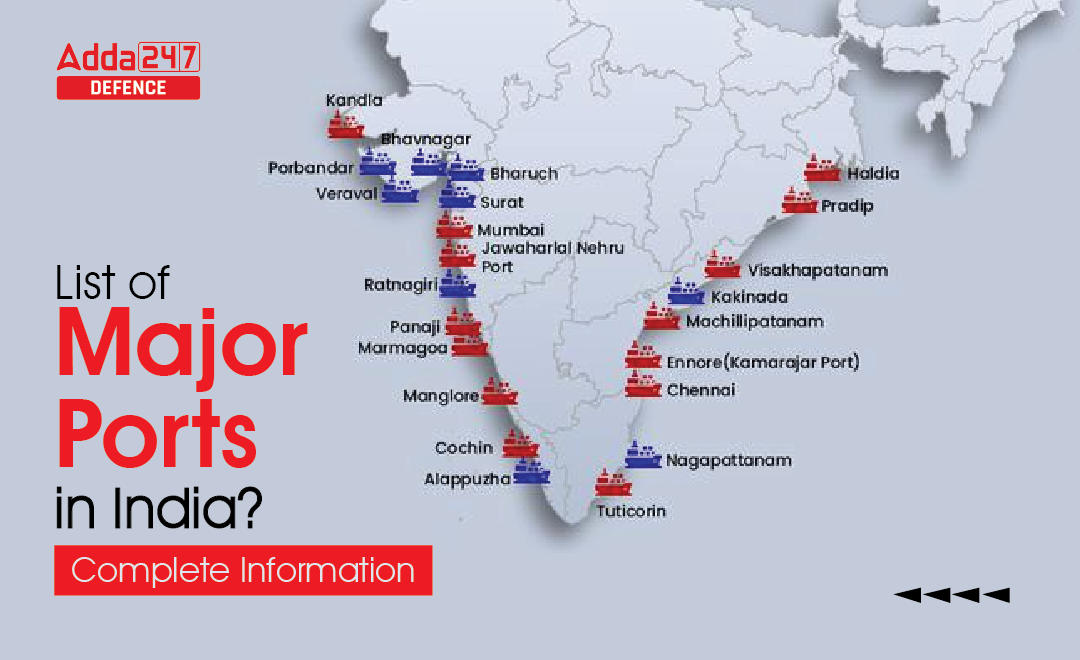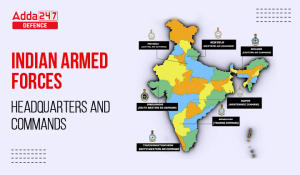Ports in India
Ports can be defined as a region which provides facilities that contains one or more harbours where ships can dock. It is used to load and discharge the passengers and cargo at international level. Ports plays an important role to run the economy of the country by facilitating trade. Globally, Water transport is the best and cheapest source of transportation.
India, a peninsular country, has a coastline of around 7516.6 kilometres, having a total of 200 major and non-major ports. As per the reports of Ministry of Shipping, around 95% of India’s trading by volume and 70% by value is done through maritime transport. The export of India is increasing very rapidly due to maritime transportation and to strengthen the facility, Government of India has focused on modernising these ports through a project called Sagarmala, which envisages unlocking the potential of waterways and the coastline to minimize infrastructural investments required to meet economic targets.
In India there are 9 coastal states namely Maharashtra, Gujarat, Karnataka, Goa, Kerala, Tamil Nadu, Andhra Pradesh, Odisha, West Bengal and two union territories Daman and Diu and Puducherry.
In India, currently there are a total 13 major in which 12 ports are government owned and 1 is privately owned and approximately 200 minor and intermediate ports which are notified. he thirteen seaports include Kochi Port in Kerala, Ennore in Tamil Nadu, Haldia in West Bengal, Kolkata Port in West Bengal, Kandla in Gujarat, Mangalore in Karnataka, Marmagoa in Goa, Mumbai Port in Maharashtra, Jawaharlal Nehru Port in Maharashtra, Paradip in Odisha, Tuticorin in Tamil Nadu, Vishakhapatnam in Andhra Pradesh, and Chennai in Tamil Nadu.
Previously India had 14 major ports including Port Blair port, located on Andaman and Nicobar islands but due to a lack of container traffic, Port Blair lost its ‘major port’ tag.
The shipping ministry comes under the concurrent subject that gives power to both state and central ministries so, the responsibility to administer these ports are in the hands of states and the central government.
The Government has allowed Foreign Direct Investment (FDI) of up to 100% under the automatic route for port and harbour construction and maintenance projects. Also, the National Maritime Development Programme (NMDP) has been initiated to develop the maritime sector with a planned budget of US$11.8 billion.
List of Major Ports in India
Let’s know about the major 13 ports of India with the name of state and their major export product –
| S.No. | Seaports | States | Major export |
| 1. | Kochi Port | Kerala | Tea, Coffee, Spices, etc |
| 2. | Ennore Port | Tamil Nadu | Iron ore, petroleum, coal, and chemicals |
| 3. | Haldia port | West Bengal | Jute, steel, iron ore, etc |
| 4. | Kolkata Port | West Bengal | Iron ore, tea, coal, steel, etc |
| 5. | Kandla Port | Gujarat | Textile, manganese, machinery, leather, chemical products, etc |
| 6. | Mangalore Port | Karnataka | Iron ore |
| 7. | Marmagoa | Goa | Iron ore |
| 8. | Mumbai Port | Maharashtra | Textile, manganese, machinery, leather, chemical products, etc |
| 9. | Jawaharlal Nehru port | Maharashtra | Textile, chemicals, pharmaceuticals, carpets, etc |
| 10. | Paradip Port | Odisha | Iron ore, iron, and aluminium |
| 11. | Tuticorin Port | Tamil Nadu | Salt, fertilizer, petroleum, coal, etc |
| 12. | Vishakhapatnam Port | Andhra Pradesh | Coal, alumina, oil, and coals |
| 13. | Chennai port | Tamil Nadu | Rice, textile, leather, goods, etc |
 FAQs related to Major Ports in India
FAQs related to Major Ports in India
Q1. Which is considered to be the best port in India?
Ans. Mumbai Port is India’s largest port by size and shipping traffic.
Q2. Which organisation controls major ports in India?
Ans. The shipping ministry manages the major ports, the intermediate and the minor ports are administered by the State government in which the port is located.
Q3. Which is the oldest port in India?
Ans. Kolkata Port is the oldest operating port in India built by the British East India Company.


 List of All Important Inventions and The...
List of All Important Inventions and The...
 Headquarters and Commands of Indian Arme...
Headquarters and Commands of Indian Arme...
 Major Dhyan Chand Khel Ratna Award Winne...
Major Dhyan Chand Khel Ratna Award Winne...
